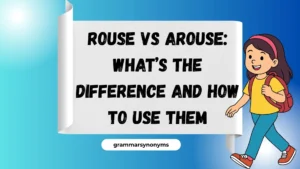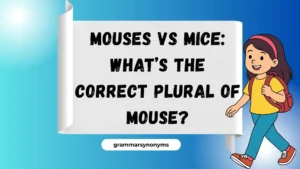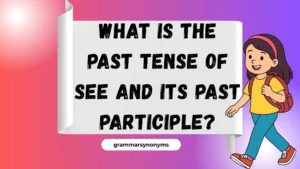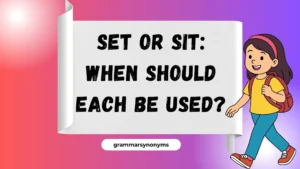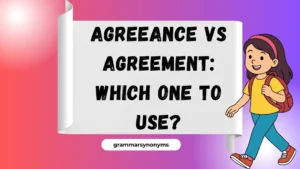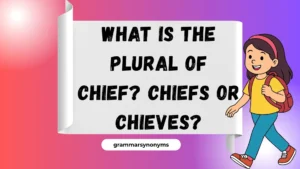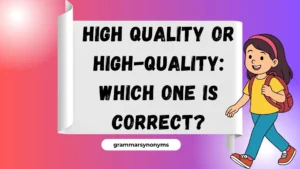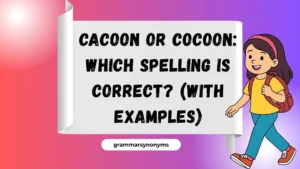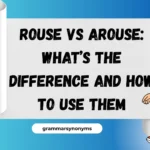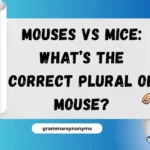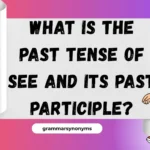Finding the right words to praise someone can make a huge difference. While “Great Job” is common, exploring alternative ways to express appreciation can make your message feel more personal, thoughtful, and impactful. Whether in the workplace, at home, or with friends, using varied expressions helps convey genuine recognition and encouragement.
What Does “Great Job” Mean?
“Great Job” is a simple phrase used to acknowledge someone’s effort or achievement. It conveys appreciation, approval, or recognition of quality work. However, while effective, repeating it often can feel generic. Using alternative expressions adds warmth and personal touch.
Is It Professional/Polite to Say “Great Job”?
Yes! “Great Job” is both professional and polite, making it suitable for workplaces, casual conversations, or social settings. However, context matters: adding a bit of specificity or using alternatives can enhance professionalism and make your praise feel sincere.
Pros and Cons
Pros:
- Easy to say and widely understood
- Positive reinforcement
Cons:
- Can feel generic if overused
- May lack personal touch or specificity
Synonyms for “Great Job”
- Well Done
- Excellent Work
- Fantastic Effort
- Nice Work
- Superb Job
- Kudos
- Impressive Work
- You Did It!
- Hats Off
- That’s Outstanding
- You Nailed It
- Phenomenal Work
- Keep It Up
- Bravo
- Exceptional Performance
- You’re Amazing
- Remarkable Work
- You’re on Fire
- Top Notch
- You’ve Outdone Yourself
- Marvelous Job
- You Rock
- Excellent Effort
- Outstanding Achievement
- Fantastic Performance
- Great Work
- Admirable Job
- Exceptional Effort
- Brilliant Work
- Spectacular Job
1. Well Done
Definition: A classic expression praising successful completion of a task.
Detailed Explanation: Conveys acknowledgment for good performance or effort.
Scenario Examples: “You finished the report early—well done!”
Best Use: Formal and casual settings; excellent for workplace recognition.
Tone: Appreciative, respectful
Additional Notes: Works well with specific achievements.
2. Excellent Work
Definition: Highlights quality and precision in what someone has accomplished.
Detailed Explanation: Emphasizes not just completion, but high-quality results.
Scenario Examples: “Your presentation was detailed and clear—excellent work!”
Best Use: Professional or academic environments
Tone: Encouraging, affirming
Additional Notes: Adds a slightly more formal tone than “Great Job.”
3. Fantastic Effort
Definition: Recognizes dedication and effort, not just results.
Detailed Explanation: Shows appreciation for commitment and persistence.
Scenario Examples: “I know that project was challenging, but fantastic effort!”
Best Use: Motivating team members or students
Tone: Uplifting, supportive
Additional Notes: Great for emphasizing effort over perfection.
4. Nice Work
Definition: Simple praise for a task done well.
Detailed Explanation: Friendly and casual, conveys approval without formality.
Scenario Examples: “You handled that client really well—nice work!”
Best Use: Everyday casual interactions
Tone: Friendly, informal
Additional Notes: Perfect for peer-to-peer encouragement.
5. Superb Job
Definition: Strong praise indicating exceptional performance.
Detailed Explanation: Adds emphasis beyond “Great Job,” highlighting excellence.
Scenario Examples: “Your coding skills are impressive—superb job!”
Best Use: Professional settings or formal commendations
Tone: Admiring, respectful
Additional Notes: Suitable for emails or formal recognition.
6. Kudos
Definition: Informal praise for achievement or effort.
Detailed Explanation: A casual way to give recognition and celebrate success.
Scenario Examples: “Kudos on finishing the design ahead of schedule!”
Best Use: Team chats, informal emails
Tone: Cheerful, friendly
Additional Notes: Works well in modern workplace culture.
7. Impressive Work
Definition: Recognizes outstanding quality in someone’s work.
Detailed Explanation: Shows admiration and acknowledges skill or talent.
Scenario Examples: “That marketing strategy was very creative—impressive work!”
Best Use: Professional or academic praise
Tone: Respectful, admiring
Additional Notes: Focuses more on results than effort.
8. You Did It!
Definition: Celebratory phrase acknowledging completion or success.
Detailed Explanation: Expresses excitement and personal recognition.
Scenario Examples: “You fixed the bug—You did it!”
Best Use: Casual or celebratory moments
Tone: Enthusiastic, cheerful
Additional Notes: Works well for personal achievements.
9. Hats Off
Definition: Figurative expression of admiration or respect.
Detailed Explanation: Shows appreciation for skill, effort, or accomplishment.
Scenario Examples: “Hats off for organizing such a seamless event!”
Best Use: Public recognition or formal appreciation
Tone: Respectful, complimentary
Additional Notes: Slightly formal but memorable.
10. That’s Outstanding
Definition: Praise indicating exceptional quality.
Detailed Explanation: Highlights excellence, not just adequacy.
Scenario Examples: “Your report was thorough and well-researched—that’s outstanding!”
Best Use: Professional emails or presentations
Tone: Admiring, encouraging
Additional Notes: Can elevate the perceived value of the accomplishment.
11. You Nailed It
Definition: Informal phrase praising precision or skill.
Detailed Explanation: Suggests someone executed a task perfectly.
Scenario Examples: “You nailed that presentation!”
Best Use: Casual, friendly conversations
Tone: Cheerful, encouraging
Additional Notes: Great for peer-to-peer interactions.
12. Phenomenal Work
Definition: Strong acknowledgment of exceptional performance.
Detailed Explanation: Conveys high admiration for results or effort.
Scenario Examples: “The design you created is phenomenal work!”
Best Use: Professional recognition or awards
Tone: Admirable, motivating
Additional Notes: More formal and impressive than casual praise.
13. Keep It Up
Definition: Encouragement to maintain high performance.
Detailed Explanation: Acknowledges past success while motivating continued effort.
Scenario Examples: “Your progress in coding is great—keep it up!”
Best Use: Coaching, mentoring, or teamwork
Tone: Motivational, supportive
Additional Notes: Less formal, encourages ongoing effort.
14. Bravo
Definition: Expresses applause or admiration.
Detailed Explanation: Often used in public or group settings to recognize achievements.
Scenario Examples: “Bravo on completing the project ahead of time!”
Best Use: Team meetings or celebrations
Tone: Cheerful, celebratory
Additional Notes: Can feel theatrical in formal contexts.
15. Exceptional Performance
Definition: Highlights top-tier achievement or effort.
Detailed Explanation: Formal way to commend excellence in results.
Scenario Examples: “Your analysis shows exceptional performance in problem-solving.”
Best Use: Workplace evaluations or official recognition
Tone: Professional, respectful
Additional Notes: Formal alternative for “Great Job.”
16. You’re Amazing
Definition: Personal and enthusiastic praise.
Detailed Explanation: Conveys admiration for effort, skill, or results.
Scenario Examples: “You handled that customer complaint perfectly—you’re amazing!”
Best Use: Casual and personal recognition
Tone: Warm, encouraging
Additional Notes: Informal, best used in friendly contexts.
17. Remarkable Work
Definition: Emphasizes extraordinary quality.
Detailed Explanation: Suggests the achievement is noteworthy and memorable.
Scenario Examples: “Your research paper was thorough and insightful—remarkable work!”
Best Use: Academic, professional, or formal settings
Tone: Admiring, professional
Additional Notes: Conveys a higher level of recognition.
18. You’re on Fire
Definition: Informal phrase acknowledging consistent excellence.
Detailed Explanation: Suggests someone is performing exceptionally well repeatedly.
Scenario Examples: “You’ve closed five deals this week—you’re on fire!”
Best Use: Casual, energetic encouragement
Tone: Fun, motivating
Additional Notes: Works in team or friendly contexts.
19. Top Notch
Definition: Indicates high quality and exceptional standard.
Detailed Explanation: Recognizes performance above average expectations.
Scenario Examples: “Your presentation skills are top notch!”
Best Use: Professional and casual contexts
Tone: Complimentary, affirming
Additional Notes: Slightly informal, conveys excellence.
20. You’ve Outdone Yourself
Definition: Acknowledges effort that surpasses expectations.
Detailed Explanation: Highlights exceptional achievement or improvement.
Scenario Examples: “The event setup is amazing—you’ve outdone yourself!”
Best Use: Personal and professional recognition
Tone: Appreciative, enthusiastic
Additional Notes: Emphasizes effort beyond normal performance.
21. Marvelous Job
Definition: Strong praise for accomplishment.
Detailed Explanation: Suggests delight and admiration for the result.
Scenario Examples: “You completed the assignment perfectly—marvelous job!”
Best Use: Professional or friendly contexts
Tone: Positive, warm
Additional Notes: Slightly formal, uplifting.
22. You Rock
Definition: Informal, enthusiastic praise.
Detailed Explanation: Highlights appreciation in a casual, energetic tone.
Scenario Examples: “You finished the project early—You rock!”
Best Use: Friends, teammates, or casual colleagues
Tone: Fun, energetic
Additional Notes: Avoid in highly formal contexts.
Also Read This : 30 Other Ways to Say “Happy to Discuss” (With Examples)
23. Excellent Effort
Definition: Praises the quality of effort rather than results alone.
Detailed Explanation: Encourages persistence and dedication.
Scenario Examples: “You may not have won, but excellent effort in the competition!”
Best Use: Motivating students or teammates
Tone: Supportive, encouraging
Additional Notes: Focuses on growth and dedication.
24. Outstanding Achievement
Definition: Recognizes major accomplishment or milestone.
Detailed Explanation: Conveys admiration for extraordinary success.
Scenario Examples: “Completing the project under budget was an outstanding achievement!”
Best Use: Professional recognition, awards
Tone: Formal, admiring
Additional Notes: Highlights results more than effort.
25. Fantastic Performance
Definition: Emphasizes quality in action or execution.
Detailed Explanation: Suitable for praising excellence in work, sports, or presentations.
Scenario Examples: “Your speech was clear and engaging—fantastic performance!”
Best Use: Professional, casual, or performance contexts
Tone: Encouraging, affirming
Additional Notes: Slightly formal but versatile.
26. Great Work
Definition: Simple and effective acknowledgment.
Detailed Explanation: Generic praise suitable for many contexts.
Scenario Examples: “You completed the task on time—great work!”
Best Use: Everyday recognition
Tone: Friendly, supportive
Additional Notes: Works anywhere but can be repetitive.
27. Admirable Job
Definition: Recognizes noteworthy effort or achievement.
Detailed Explanation: Highlights respect for dedication and accomplishment.
Scenario Examples: “Your research and analysis were thorough—admirable job!”
Best Use: Formal or professional settings
Tone: Respectful, encouraging
Additional Notes: Slightly formal, ideal for written praise.
28. Exceptional Effort
Definition: Highlights extraordinary dedication.
Detailed Explanation: Focuses on effort more than outcome.
Scenario Examples: “Even though the challenge was tough, your exceptional effort is inspiring!”
Best Use: Motivational or mentoring scenarios
Tone: Supportive, encouraging
Additional Notes: Great for educational or developmental feedback.
29. Brilliant Work
Definition: Praises intelligence, creativity, or skill.
Detailed Explanation: Suggests admiration for smart or clever solutions.
Scenario Examples: “Your innovative solution to the problem was brilliant work!”
Best Use: Professional and informal contexts
Tone: Admiring, supportive
Additional Notes: Highlights mental acuity as well as results.
30. Spectacular Job
Definition: Strong, enthusiastic praise for achievement.
Detailed Explanation: Conveys excitement and admiration.
Scenario Examples: “The event went perfectly—spectacular job!”
Best Use: Formal recognition or celebratory occasions
Tone: Excited, admiring
Additional Notes: Ideal for high-impact praise.
Conclusion
Using diverse alternatives to “Great Job” allows you to express sincere appreciation while adding a personalized touch. Whether acknowledging effort, skill, or results, these phrases can boost motivation, show genuine recognition, and strengthen relationships. Experiment with different options to match tone, context, and the individual’s personality.
FAQs
1. Why should I use alternatives to “Great Job”?
Using alternatives adds variety, sincerity, and specificity to your praise. It prevents your compliments from sounding repetitive and makes the person feel more genuinely appreciated.
2. Are these phrases suitable for the workplace?
Yes! Many alternatives like “Excellent Work,” “Outstanding Achievement,” or “Exceptional Performance” are professional and perfect for workplace recognition.
3. Can I use these phrases in casual conversations?
Absolutely. Phrases like “You Rock,” “Nice Work,” or “You’re Amazing” are ideal for informal or friendly settings.
4. How can I make praise feel more impactful?
Pair your praise with specific details. Instead of just saying “Well Done,” add what impressed you: “Well done on leading that meeting so confidently.”
5. What’s the difference between praising effort and results?
Praising effort (e.g., “Fantastic Effort,” “Exceptional Effort”) motivates persistence, while praising results (e.g., “Outstanding Achievement,” “Brilliant Work”) highlights the success itself. Both are powerful, depending on the context.

“Emma Brooke at Grammar Synonyms is your trusted source for mastering the art of language. Whether you’re looking for the perfect synonym, refining your grammar, or searching for that one ideal phrase, we’ve got you covered. With a wealth of tools and resources, Emma Brooke brings you creative solutions for all your writing needs, making sure your words always hit the mark. Unlock a world of language possibilities and elevate your writing with ease.”

